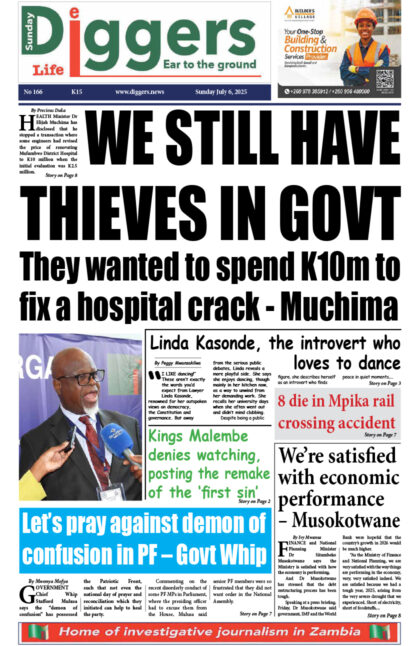Government should increase the Pay as You Earn (PAYE) exemption threshold from the current K3,300 to K4,000 to provide relief to workers, says the Federation of Free Trade Unions of Zambia (FFTUZ).
Ahead of the 2019 national budget presentation, FFTUZ president Chingati Msiska has asked government to consider increasing the PAYE exemption threshold to K4,000 to provide much-needed relief to low-income earners.
He also asked for revisions in the PAYE rate for the higher income brackets to motivate workers that are currently faced with various taxes on incomes to participate meaningfully in the economy.
“FFTUZ is expecting a budget that should not only realistically translate into uplifting the living standards of workers and the poor, but also spur transformative growth in the economy. FFTUZ, therefore, proposes an increase in the Pay as You Earn (PAYE) exempt threshold from the current K3,300 to K4,000. The Union feels that the K3,300 exempt threshold is too low in view of the high cost of living as well as weakening purchasing power of the kwacha,” Chingati stated in a press statement issued in Lusaka, Tuesday.
“It is, therefore, very important for government to consider providing relief to workers. In addition, whilst acknowledging the economic difficulties the country is in, FFTUZ is concerned that government has continued relying on workers to fund the Treasury by overtaxing them. The Union, therefore, proposes that PAYE rate on those earning between K4,001 to K7,000 should be 18 per cent; from K7,001 to K10,000 to be paying 25 per cent; while those earning beyond K10,000 to be taxed at 30 per cent.”
Chingati added that the 2019 national budget should promote local small-scale industries through creation of manufacturing and export processing ones at provincial levels, which could be modelled around the concept of MFEZes.
“We propose that the budget should encourage creation of manufacturing zones at provincial level where small-scale industries operating in these zones can be given tax incentives. This would encourage value-addition of produce at provincial level as well as create employment. For instance, there would be no need for a farmer in Chipata to transport raw soy beans to Lusaka. Government, therefore, needs to make available land and other infrastructure in these zones. Once this is done, farmers would have ready and easily accessible markets, and a lot of youth would be employed as well,” stated Msiska.
“In this regard, FFTUZ expects the budget to be tailored towards promoting value-addition in the agriculture and manufacturing sectors.”
Government has projected to roll out a K84.6 billion national budget next year expected to be supported by increased tax revenues amounting to around K7.4 billion more than last year’s budget.
According to the government’s Green Paper released last week ahead of the 2019 national budget, a total amount of K84.6 billion is expected to be spent in next year’s budget, up from 2018’s K71.6 billion.



















